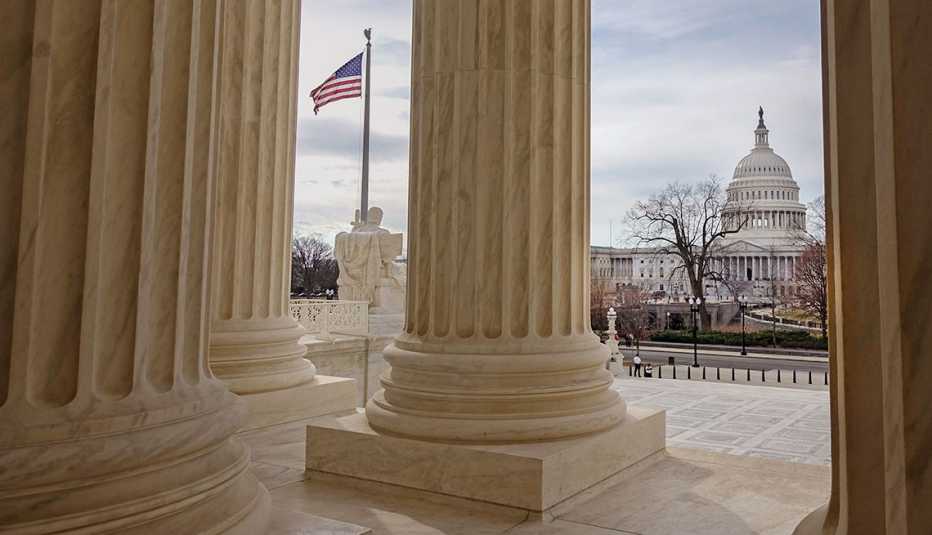Staying Fit


Congress this week is trying to meld two complex plans for changing the nation’s tax code into a single piece of legislation. The overall impact of the bills passed by the Senate and House of Representatives on older Americans would be devastating, raising taxes on millions of them. In addition, the plans would also grow the nation’s deficit, which would prompt mandatory cuts to programs vital to seniors such as Medicare.
In a letter to Senate leadership last week concerning its version of the tax bill, AARP Chief Executive Officer Jo Ann Jenkins urged Congress to work in a bipartisan fashion to enact tax legislation that would meet the needs of the older population and arrive at a tax code that is “more equitable and efficient, promotes growth, and produces sufficient revenue to pay for critical national programs, including Medicare and Medicaid.”


AARP Membership— $12 for your first year when you sign up for Automatic Renewal
Get instant access to members-only products and hundreds of discounts, a free second membership, and a subscription to AARP the Magazine.
Both measures would add $1.5 trillion to the deficit. Absent congressional action, under a law known as “Pay-As-You-Go,” a projected deficit of that amount would trigger automatic spending reductions in many federal programs, including Medicare. According to the nonpartisan Congressional Budget Office (CBO), the legislation would result in a $25 billion cut in Medicare in 2018.
An analysis released last week by the nonpartisan Joint Committee on Taxation found that more than 60 percent of U.S. households would get tax cuts in 2019 under the Senate plan, but by 2027, after the individual tax cuts expire, roughly the same number would either have higher taxes or cuts below $100.
More than one million taxpayers 65 and older would pay higher taxes in 2019, and more than 5 million would see their taxes increase by 2027, according to an AARP Public Policy Institute analysis. More than 5 million seniors would not receive a tax break at all in 2019, and 5.6 million would not see their taxes decrease by 2027.
While the centerpiece of both proposals is a major cut to the top corporate tax rate — dropping it from 35 percent to 20 percent — there are significant differences between the measures. The Senate bill — unlike the House proposal — repeals the Affordable Care Act provision requiring most Americans to have health insurance. That change could ultimately result in 13 million more people without health insurance by 2027 and increase premiums in the individual health insurance market by 10 percent in most years over the next decade, according to the CBO. An AARP Public Policy Institute analysis found that people ages 50 to 64 in this market would face average premium increases of up to $1,500 in 2019.

































































More From AARP
AARP Poll: Voters 50+ Favor Republicans in 2024 Elections
Survey of most competitive congressional districts also has DeSantis doing better against Biden than TrumpAARP Poll: Voters 50-Plus Want Candidates to Support Caregivers
Older voters also see threats to democracy, Social Security and Medicare as critical issues in the 2024 election